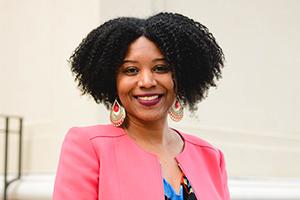Business
HQ2: DC, NYC and Beyond

It’s official. HQ2 is coming to Washington, DC — Arlington, Virginia that is. And it must have been a tough decision, because Amazon’s splitting the new campus with New York City. Both DC and NYC will gain more than 25,000 new employees, inundating each city with fresh talent, additional residents and new innovations.
So, why the two locations? How could it effect DC’s entrepreneurship ecosystem? And its impact on the city as a whole?
As a follow-up from her feature Amazon’s HQ2: Destination DC last spring, we asked Brett Gilbert, Kogod’s Regional Innovation Chair and management professor, her insight on the move. Read more below about her thoughts on Amazon’s next move.
Kogod School of Business: HQ2 in DC: good or bad?
Brett Gilbert: I think this is the best case outcome for the DMV area. Amazon gets the space it will need to grow as a company; DC will potentially gain spillover effects from those who wish to live or socialize in the city. And Amazon's decision to split into two headquarters means the region will not be overburdened by their growth. I think this lessens potential negative impact their presence could have in any region.
KSB: Was this a surprise for you?
BG: I never would have guessed that they would consider creating two headquarters but these two particular choices are not a surprise to me. I actually think this is a really smart decision.
KSB: Why the two locations?
BG: New York and Northern Virgina both have unique technological competencies. I see New York's ecosystem strengths as being in internet software/services, which I believe would have potential to strengthen Amazon's e-commerce business. Northern Virginia, on the other hand, has software strengths, but more in cybersecurity. But it also has significant strengths in hardware/infrastructure technologies.
KSB: What, in your opinion, does this location choice ultimately do for the company?
BG: Positioning themselves in New York and Northern Virginia gives Amazon an opportunity to connect with two different types of technology communities that serve the needs of their business model. And proximity to the government is important for any future technologies they may choose to role out, which require regulatory changes. I always believed Northern Virginia was an ideal location for what Amazon wanted to do, but having lived in New York City for five years, I definitely understand the appeal of being connected to New York's technology community.
KSB: What impact could it have on the Washington, DC, business community?
BG: The split into two locations potentially means that local businesses can breathe a sigh of relief because their presence in the area will be less. While employee deflection to Amazon may still be a concern, the fact that they are hiring fewer in this area could mean it will be possible to retain good employees. There is also the possibility that the employees Amazon brings to the area, who may not have otherwise found themselves in DC, will enter the general employment pool at some point in the future. So while there may very well be a short term state of flux in the employment market, in the long run I believe this will benefit all firms in the area by strengthening the employment pool.
KSB: And for entrepreneurs specifically?
BG: I think it will boost the rates of entrepreneurship in the area, both from those who wish to create businesses that serve some aspect of Amazon's business model, as well as from those who may move here initially to work for Amazon but find an opportunity to venture out on their own. This move leaves me very optimistic that Amazon's presence here may significantly boost in entrepreneurship within the DMV region.
